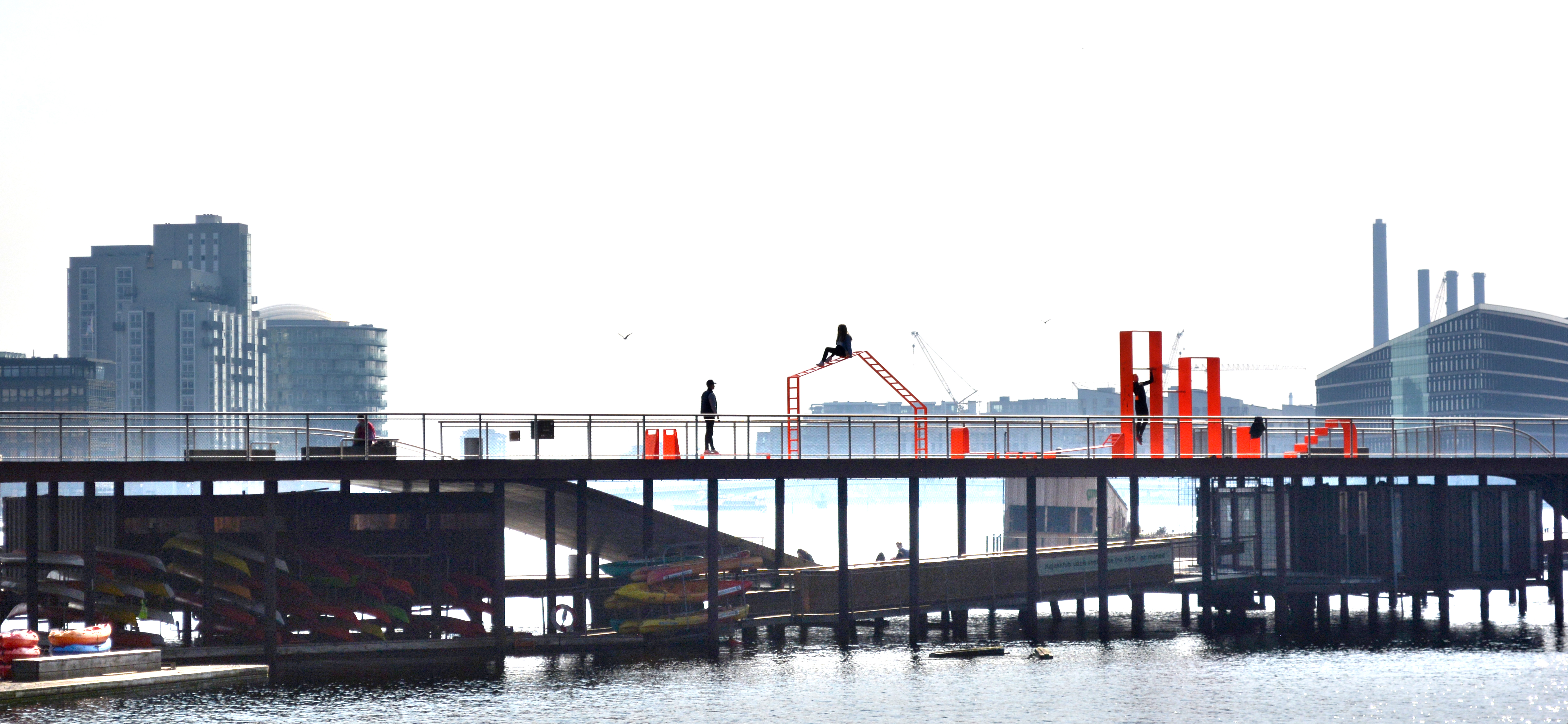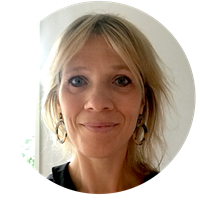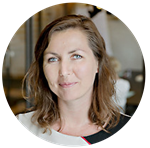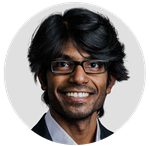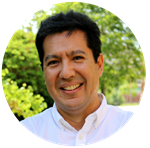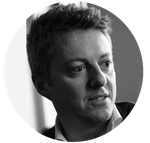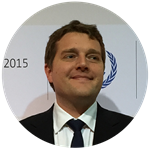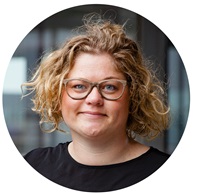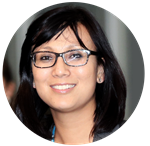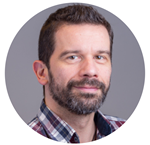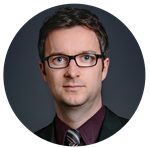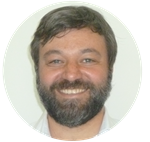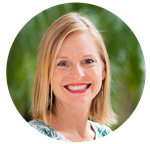The summer school will bring together researchers, practitioners, and policymakers, during an intensive eight-day course from 12-19 September 2019 in Copenhagen.
The summer school aims at providing multi-disciplinary knowledge and perspectives on the different global and local challenges in cities of the Global South and the Global North.
Through lectures and problem-based workshops using Copenhagen’s real-life experience and challenges as a living laboratory, the participants will also gain the necessary skills and knowledge to develop informed policies, strategies, plans and solutions for urban resilience.
BLOXHUB Summer School
Today over 50% of the world population lives in urban areas, and cities account for 60-80% of global energy consumption and the same level of greenhouse gases emissions, producing 50% of global waste, consuming 75% of natural resources and producing 80% of global GDP. Cities and their populations are vulnerable and increasingly exposed to rapid and slow on-setting climate and environmental disasters, which frequency and intensity are growing exponentially. Cities are also major economic activity centres , social life and culture, innovation and knowledge-creation.
Urban resilience aims to increase the ability of urban systems, to respond systemically and dynamically to present and future shock and stresses related to major global challenges as unsustainable development patterns, rapid and unplanned urbanization, climate change mitigation and adaptation.
Urban resilience is instrumental in addressing both causes and effects of these major global challenges, re-thinking how cities are designed, planned and managed, and fostering innovation. The scientific research on urban resilience has grown exponentially in the last decade. Parallelly, a growing number of cities worldwide started developing resilience-related plans and actions, following the recommendations and prescriptions of national and international policies, such as Sustainable Development Goals, Paris Agreement, New Urban Agenda and Sendai Framework for Disaster Risk Reduction. The key challenge for urban resilience is to co-develop and harmonize scientific and practice-led knowledge to support informed and science-based decision and policy making, to enable our cities to evolve and innovate.
The BLOXHUB Summer School on Urban Resilience will bring together researchers, practitioners, and policymakers during an intensive eight-day course from 12-19 September 2019 at Bloxhub in Copenhagen. The summer school aims to provide the participants with the latest knowledge on urban resilience research, practice and policies through lectures;. Moreover, it aims to co-develop participants' skills and expertise on planning for urban resilience using Copenhagen's real-life experience and challenges as a living laboratory problem-based workshop.
The summer school goal is to bring together multi-disciplinary knowledge and perspectives, from science and practice, on the different global and local challenges faced by cities, and to provide a process design methodology and the necessary skills to developed informed policies, strategies, plans and solutions for urban resilience, that can be later used in the specific context of work of the participants.
The lectures will provide an overview on major international policies in relation to urban resilience (Sustainable Development Goals, Paris Agreement, New Urban Agenda and Sendai Framework for Disaster Risk Reduction), key practices worldwide including those developed in the frame of major international organizations (e.g., UNFCCC Secretariat, UNDRR, UNESCO, UN-Habitat City Resilience Profiling Program, ICLEI, WWF), and the latest developments and perspectives for research.
The lectures will also address key cross-sectoral and thematic issues, including multi-level governance, finance, generation of co-benefits, nature-based solutions, appropriate technology, participatory processes and stakeholder’s involvement, urban metabolism, circular economy, planning and design.
The workshop will allow the participants to engage, through group work, with real-life problems and challenges faced by The City of Copenhagen, and to develop a strategy and action plan following a process design methodology that includes specific methods as system analysis forecasting, vision and backcasting of future scenarios, monitoring and evaluation.
The participants will develop their knowledge on:
The basis of urban resilience science, and the development of resilience research in different disciplinary contexts;
International policies (Sustainable Development Goals, Paris Agreement, New Urban Agenda and Sendai Framework for Disaster Risk Reduction);
National policies regarding climate adaptation and mitigation, including urban content of Nationally Determined Contributions and urban aspects of National Adaptations Plan and Policies;
Urban resilience practices with specific case studies from cities worldwide, including strategic plans, action plans, and technological solutions
The participants will develop competencies on the use of:
Process design methodology for urban resilience;
System thinking for the analysis of urban shock and stresses;
Different future scenarios methods: forecasting, visioning and backcasting
Scientist and researchers: including PhD candidates, post-docs, research fellows and lecturers from universities and research organizations.
Practitioners: including policymakers, from national and subnational governments and public organizations, officers from international and intergovernmental organizations, staff from private profit and non-profit organizations.
Participants with different disciplinary background are welcome: including engineering, architecture, planning, environmental, economic and social sciences.
English language proficiency is required.
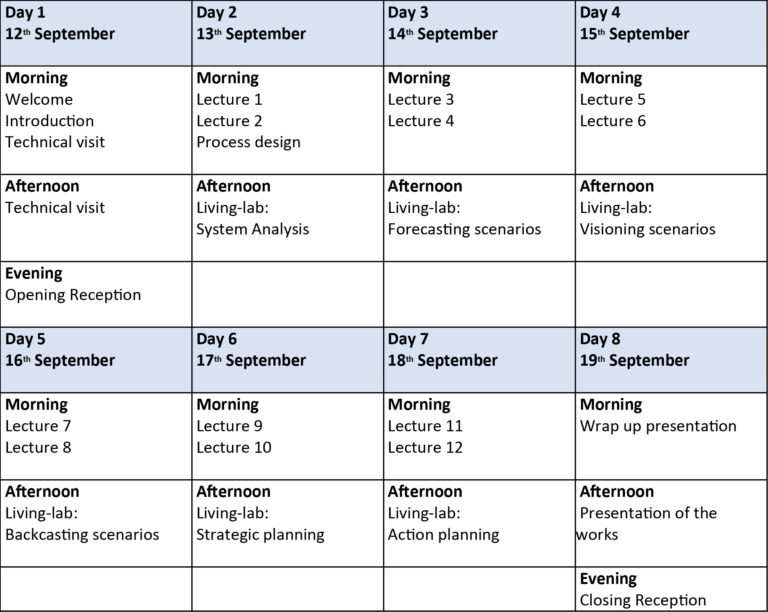
The first day will start with a welcome introduction to the summer school activities, followed by a technical visit to current resilient projects in Copenhagen and to understand the cities’ challenges.
From day 2 to 7, there will be morning lectures delivered by lead practitioners and researchers and workgroups working on Copenhagen’s real-life challenges in the afternoon. On the last day, the participants will finalize their work and present it to a panel of experts to assess it.
Open submission: 15 May 2019
The extended deadline for submissions: 23 June 2019
Course date: 12-19 September 2019
The Summer School Urban Resilience is targeted at practitioners, scientists, and researchers with different disciplinary backgrounds including engineering, architecture, planning, environmental, economic, and social sciences.
There is a limited number of places available, therefore the participants will be competitively selected according to their curriculum vitae, motivation letter, video and the application form.
The deadline for applying to BLOXHUB Summer School in Urban Resilience in 2019 is closed. We will post information on the application procedure for the next summer school in March.
There is a fee for participants of 1400 EUR.
Successful candidates will receive information about the modes of payment once admitted.
The application fee includes:
- Site visits
- Coffee breaks
- Downloadable learning materials
- Participation diploma
- Welcome package
The application fee does not include:
- Accommodation
- Travel expenses
- Meals
- Visa expenses
A substantial fee reduction is foreseen for participants from low-income countries.
The participants shall request the fee reduction during the application. Each request will be assessed individually.
To verify your initial eligibility for the reduced fee (country classification) please refer to the World Bank Country and Lending Groups.
Organizers
Partners
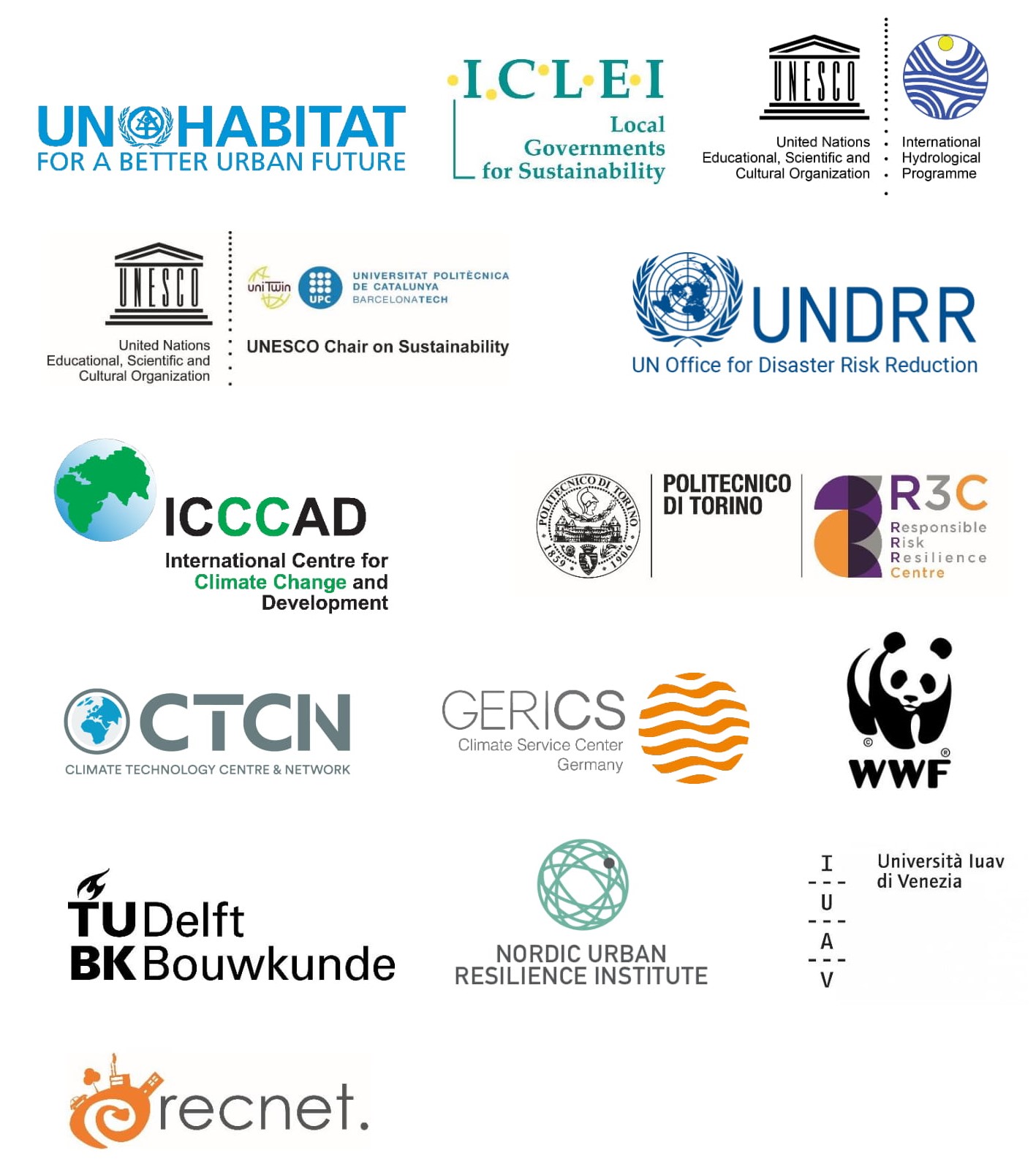
With financial support from
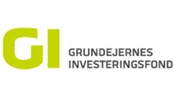

Participants

PhD Fellow in Urban and Regional Development
Interuniversity Department of Regional and Urban Studies and Planning
Politecnico di Torino

Associate Programme Officer
UN Climate Change
Linkedin

Urban resilience project manager
RESALLIENCE
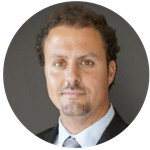
Researcher (Phd project)
Climate Service Center Germany
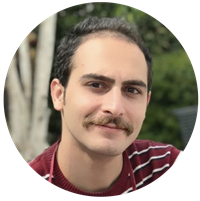
PhD student in Urban and Regional Development
Politecnico di Torino

MSc candidate in Urban Management and DevelopmentHIS,
Erasmus University Rotterdam
Linkedin

Associate Professor of Environmental Design
KADK

University Researcher II, School of Urban and Regional PlanningCapacity Building Cluster Head,
United Architects of the Philippines- Emergency Architects
Linkedin
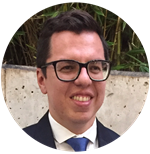
General Secretary in the Risk Management Unit of Colombia
Linkedin
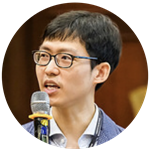
Green Climate Fund
Linkedin
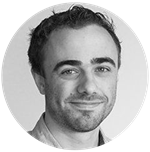
Research Assistant, United Nation University -EHS
Homepage
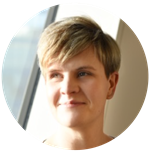
Planner 2, City of Calgary
Linkedin

Founder and Director
REASALLIENCE
Linkedin
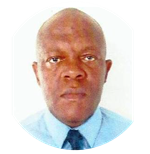
Project Director, Arctic Infrastructure

PhD candidate, University of Duisburg-Essen, Germany
Linkedin

CEO of ClUrb: Accessible and affordable software solutions for urban challenges

Czech Technical University in Prague, Czech Republic
Researcher, University Centre for Energy Efficient Buildings
Ph.D. student, Faculty of Architecture, Department of Urban Planning

Environmental Consultant, Presidio Graduate School

Ph.D. research fellow, Norges Teknisk-Naturvitenskapelige universitet – NTNU
Linkedin
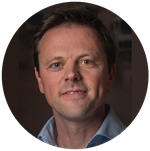
Expert Urban Resilience
Cordaid (Catholic Organisation for Relief and Development Aid)
Linkedin

Special Advisor, Abia State Government, Nigeria
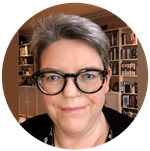
Project Manager for “Denmark in 3D”
The Danish Agency for Data Supply and Efficiency (SDFE.dk),
part of the Ministry of Climate, Energy and Utilities.
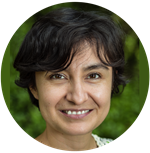
Resilient Development Program OfficerICLEI - Local Governments for Sustainability

PhD student, University of Venda
Lecturers
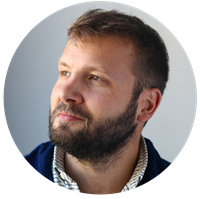
Double dregree Phd candidate
University of Copenhagen
IUAV University of Venice
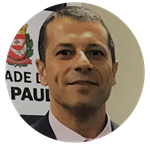
Programme Specialist, Water for Human Settlements,
International Hydrological Progamme,SC/HYD/GSS,
Natural Sciences Sector United Nations Educational,
Scientific and Cultural Organization UNESCO
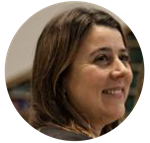
PhD, Researcher at ENEA, Italian National Agency for New Technologies,
Energy and Sustainable Economic Development,
Sustainability Department,
Circular Economy Section

Full Professor in Regional and Urban Planning, Interuniversity Department of Regional and Urban Studies and Planning,
Politecnico di Torino, Coordinator of Responsible Risk Resilience Centre – R3C, Politecnico di Torino
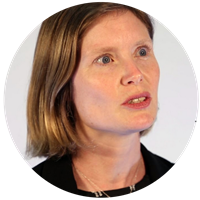
Regional Manager, Asia-Pacific CTCN
Climate Technology Centre and Network
Homepage
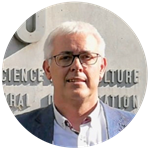
Founding Member of RECNET.
Recycling the City Network Coordinator, UNESCO Chair on Sustainability at UPC

PhD student, Environmental Policy and Planning Group,
Department of Urban Studies and Planning,
Massachusetts Institute of Technology
Homepage
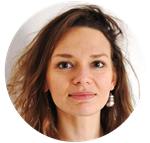
SDU Civil and Architectural Engineering,
Department of Technology and Innovation,
University of Southern Denmark
Lars Stenfeldt
Founder and CEO
Greener Smarter Living
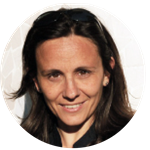
Scientist, Climate Service Center Germany (GERICS), Helmholtz Center Geesthacht
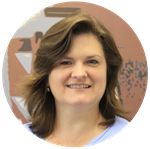
Manager of the Low Emissions Development Program,
Director of Bonn Center for Local Climate Action and Reporting (carbonn Center),
Director of Business Development at ICLEI World Secretariat
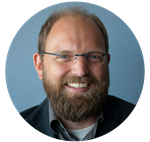
Professor, Dept. of Geography,
Teaching and Research Unit for Human-Environment Relations
Ludwig-Maximilians-Universität München

Professor wsp,
SDU Life Cycle Engineering Department of Chemical Engineering,
Biotechnology and Environmental Technology,
University of Southern Denmark

Professor wsr in Urban Resilience,
SDU Civil and Architectural Engineering,
Department of Technology and Innovation,
University of Southern Denmark

Research Assistant in Regional and Urban Planning,
Interuniversity Department of Regional and Urban Studies and Planning,
Politecnico di Torino

Associate Professor of spatial planning and strategy,
Faculty of Architecture and the Built Environment,
Delft University of Technology
Homepage

Director, International Centre for Climate Change and Development (ICCCAD),
Independent University, Bangladesh (IUB)

Head of Office Incheon, Office for Northeast Asia (ONEA) and Global Education and Training Institute (GETI),
UN Office for Disaster Risk Reduction (UNDRR)

Associate Academic Officer, United Nations University
Institute for Environment and Human Security (UNU-EHS)
Expert Committee
 Programme Specialist, Water for Human Settlements,
International Hydrological Progamme,SC/HYD/GSS,
Natural Sciences Sector United Nations Educational,
Scientific and Cultural Organization UNESCO
Programme Specialist, Water for Human Settlements,
International Hydrological Progamme,SC/HYD/GSS,
Natural Sciences Sector United Nations Educational,
Scientific and Cultural Organization UNESCO
Linkedin
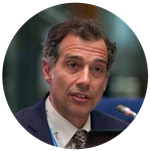
Regional Manager – LAC,
West and Central Africa CTCN,
Climate Technology Centre and Network

Full Professor in Regional and Urban Planning,
Interuniversity Department of Regional and Urban Studies and Planning,
Politecnico di Torino, Coordinator of Responsible Risk Resilience Centre – R3C,
Politecnico di Torino

Founding Member of RECNET.
Recycling the City Network Coordinator, UNESCO Chair on Sustainability at UPC

PhD, Manager of the "Impacts, Vulnerability, & Risks" subprogramme,
United Nations Framework Convention on Climate Change (UNFCCC)

Scientist, Climate Service Center Germany (GERICS), Helmholtz Center Geesthacht

Manager of the Low Emissions Development Program,
Director of Bonn Center for Local Climate Action and Reporting (carbonn Center),
Director of Business Development at ICLEI World Secretariat

Professor, Dept. of Geography, Teaching and Research Unit for Human-Environment Relations
Ludwig-Maximilians-Universität München
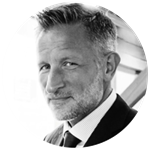
Head of Unit, Professor
SDU Civil and Architectural Engineering,
Department of Technology and Innovation,
University of Southern Denmark

Research Assistant in Regional and Urban Planning,
Interuniversity Department of Regional and Urban Studies and Planning,
Politecnico di Torino

Associate Professor of spatial planning and strategy,
Faculty of Architecture and the Built Environment,
Delft University of Technology
Homepage

Director, International Centre for Climate Change and Development (ICCCAD),
Independent University, Bangladesh (IUB)

Head of Office Incheon, Office for Northeast Asia (ONEA) and Global Education and Training Institute (GETI),
UN Office for Disaster Risk Reduction (UNDRR)
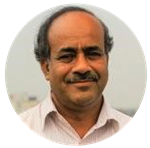
Coordinator, Urban Climate Change Programme and Country Coordinator,
ACCCRN Bangladesh International Centre for Climate Change and Development (ICCCAD),
Independent University, Bangladesh (IUB)

Co-Founder, Nordic Urban Resilience Institute (NURI)

Associate Academic Officer, United Nations University
Institute for Environment and Human Security (UNU-EHS)
Organizing Committee

Professor wsr in Urban Resilience,
SDU Civil and Architectural Engineering,
Department of Technology and Innovation,
University of Southern Denmark

Research Assistant
SDU Civil and Architectural Engineering,
Department of Technology and Innovation,
University of Southern Denmark
Linkedin

PhD student, Environmental Policy and Planning Group,
Department of Urban Studies and Planning,
Massachusetts Institute of Technology
Homepage
